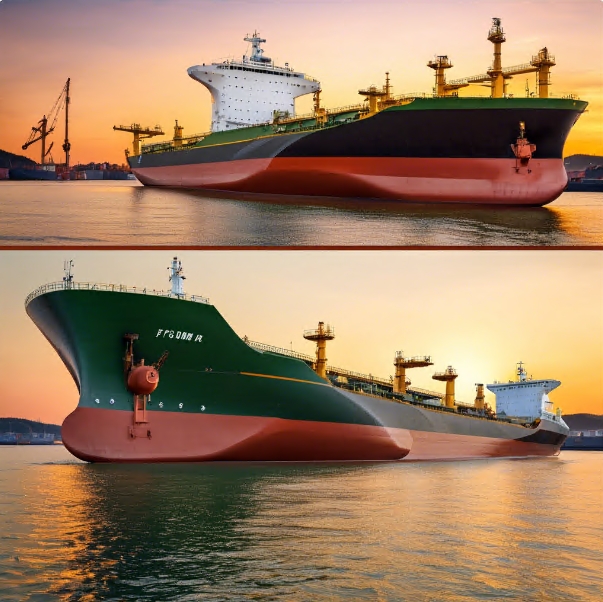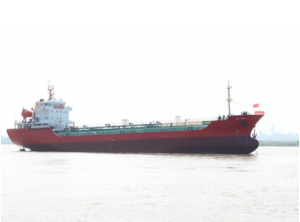BLOG
Top 6 Oil Tanker Vessel Shipbuilding Boatyards
Oil tanker vessels are critical components of the global energy supply chain, responsible for transporting vast quantities of crude oil, refined products, and chemicals across oceans. The design, construction, and maintenance of these ships require specialized expertise and state-of-the-art facilities. In this article, we will explore the Top 6 Oil Tanker Vessel Shipbuilding Boatyards, focusing on their capabilities, achievements, and why they are considered industry leaders.

H2: Importance of Choosing the Right Shipbuilding Boatyard
Selecting the right boatyard for building or maintaining an oil tanker vessel is a decision of paramount importance. These vessels must meet stringent international regulations, ensuring safety, efficiency, and environmental compliance. A reputable shipbuilding yard not only guarantees the structural integrity of the vessel but also enhances its operational lifespan and performance.
H3: Key Factors in Shipyard Selection
- Expertise in Oil Tanker Construction: Shipyards with extensive experience in oil tanker construction are more likely to deliver vessels that meet industry standards.
- Technological Advancements: Modern shipyards employ cutting-edge technology, including computer-aided design (CAD) and automated welding, to enhance precision and efficiency.
- Class Society Approval: Shipyards must be approved by international classification societies like ABS, DNV GL, or CCS to ensure that vessels meet global safety standards.
- Geographical Location: Proximity to major shipping routes and oil production regions can reduce transportation costs and turnaround times.
H2: Top 6 Oil Tanker Vessel Shipbuilding Boatyards
H3: 1. Peida Machinery Group Co., Ltd.
Location: Yangtze River, China
Overview: Peida Machinery Group Co., Ltd. is strategically located along China’s Yangtze River, a major waterway that connects inland provinces to the global shipping lanes. The company is a prominent player in the shipbuilding industry, specializing in the design, construction, and trade of various vessels, including oil tankers.
Key Features:
- Products: Bulk shipping, container ships, passenger ships, oil tankers, chemical ships, tugs, and fiberglass boats.
- Specialization: The company excels in producing oil tankers with advanced safety and environmental features.
- Class Society Approval: Peida’s vessels meet the stringent requirements of Classification Societies such as CCS (China Classification Society).
Notable Product:


- 8500DWT Oil Tanker Ship
- Class: CCS
- Length: 121.6 meters
- Width: 16.8 meters
- Depth: 9 meters
- Draft: 7.4 meters
Pros:
- Comprehensive shipbuilding capabilities
- Strategic location on the Yangtze River
- Strong reputation in the international market
Cons:
- Competitive market may lead to longer lead times
H3: 2. Hyundai Heavy Industries (HHI)
Location: Ulsan, South Korea
Overview: Hyundai Heavy Industries is one of the world’s largest and most respected shipbuilders. With a long history of delivering high-quality oil tankers, HHI is known for its innovative designs and cutting-edge technology.
Key Features:
- State-of-the-Art Facilities: HHI boasts some of the most advanced shipbuilding facilities globally, including automated production lines and large dry docks.
- Technological Leadership: The yard is at the forefront of integrating digital technology into shipbuilding, enhancing precision and efficiency.
- Global Reach: HHI serves clients worldwide, with a strong presence in Europe, the Americas, and Asia.
Notable Product:
- VLCC (Very Large Crude Carrier)
- Capacity: 320,000 DWT
- Advanced Ballast Water Treatment System
- Eco-Friendly Design
Pros:
- World-renowned for quality and innovation
- Extensive global client base
- Pioneers in eco-friendly shipbuilding practices
Cons:
- Higher costs due to premium services and advanced technology
H3: 3. Samsung Heavy Industries (SHI)
Location: Geoje Island, South Korea
Overview: Samsung Heavy Industries is another South Korean giant in the shipbuilding industry. SHI has a reputation for building some of the largest and most sophisticated oil tankers in the world.
Key Features:
- High-Tech Production: SHI is known for its high-tech shipyard facilities that allow for the construction of ultra-large vessels.
- Environmental Compliance: The shipyard places a strong emphasis on building eco-friendly vessels that comply with the latest environmental regulations.
- R&D Focus: SHI invests heavily in research and development to stay ahead in the competitive shipbuilding market.
Notable Product:
- Suezmax Tanker
- Capacity: 160,000 DWT
- Double-Hull Construction
- Advanced Navigation Systems
Pros:
- Expertise in building large-scale vessels
- Strong focus on R&D and innovation
- Commitment to environmental sustainability
Cons:
- Production primarily focused on ultra-large vessels
H3: 4. Daewoo Shipbuilding & Marine Engineering (DSME)
Location: Okpo Bay, South Korea
Overview: Daewoo Shipbuilding & Marine Engineering is a leader in building high-tech vessels, including oil tankers, LNG carriers, and offshore platforms. DSME is renowned for its engineering prowess and attention to detail.
Key Features:
- Precision Engineering: DSME is known for its meticulous engineering standards, ensuring that every vessel meets the highest quality criteria.
- Versatile Shipbuilding: The yard builds a wide range of vessels, including oil tankers, container ships, and specialized offshore vessels.
- Global Clientele: DSME serves a diverse range of international clients, particularly in the energy and transportation sectors.
Notable Product:
- Aframax Tanker
- Capacity: 115,000 DWT
- Energy-Efficient Design
- Enhanced Safety Features
Pros:
- High engineering standards
- Diverse vessel portfolio
- Strong international presence
Cons:
- Highly specialized focus may limit flexibility
H3: 5. China State Shipbuilding Corporation (CSSC)
Location: Shanghai, China
Overview: China State Shipbuilding Corporation is a state-owned enterprise that operates several shipyards across China. CSSC is one of the largest shipbuilders in the world, with a strong focus on constructing oil tankers, bulk carriers, and container ships.
Key Features:
- Large-Scale Operations: CSSC operates multiple shipyards, allowing for high production capacity and efficiency.
- Government Support: As a state-owned entity, CSSC benefits from strong governmental support, ensuring stable operations and funding.
- Global Market Leader: CSSC is a dominant force in the global shipbuilding market, with a vast client base across continents.
Notable Product:
- Panamax Tanker
- Capacity: 65,000 DWT
- Advanced Anti-Corrosion Coating
- Energy-Efficient Hull Design
Pros:
- High production capacity
- Strong government backing
- Competitive pricing
Cons:
- State ownership may limit flexibility and responsiveness
H3: 6. Fincantieri
Location: Trieste, Italy
Overview: Fincantieri is one of Europe’s largest and most prestigious shipbuilders. While primarily known for its cruise ships and naval vessels, Fincantieri also builds high-quality oil tankers that are renowned for their craftsmanship and reliability.
Key Features:
- Craftsmanship: Fincantieri is known for its attention to detail and the high-quality craftsmanship of its vessels.
- Diverse Expertise: The shipyard builds a wide range of vessels, including tankers, cruise ships, and military ships.
- Sustainability: Fincantieri is committed to sustainable shipbuilding practices, integrating green technology into its designs.
Notable Product:
- Product Tanker
- Capacity: 50,000 DWT
- Eco-Friendly Propulsion System
- Sophisticated Cargo Handling Systems
Pros:
- High-quality craftsmanship
- Commitment to sustainability
- European design and engineering excellence
Cons:
- Higher costs compared to Asian shipyards
H2: FAQs About Oil Tanker Vessel Shipbuilding
Q1: What are the key considerations when choosing a shipyard for building an oil tanker?
A1: When choosing a shipyard for oil tanker construction, consider the shipyard’s experience, technological capabilities, location, and approval from international classification societies. These factors ensure that the vessel will meet global safety and environmental standards.
Q2: How long does it typically take to build an oil tanker?
A2: The construction of an oil tanker can take anywhere from 12 to 24 months, depending on the size and complexity of the vessel, as well as the shipyard’s production capacity.
Q3: What are the environmental regulations that oil tankers must comply with?
A3: Oil tankers must comply with various international regulations, including MARPOL (International Convention for the Prevention of Pollution from Ships) and the Ballast Water Management Convention. These regulations govern pollution control, ballast water treatment, and emissions standards to protect the marine environment.
H2: Comparison Table of Top 6 Oil Tanker Vessel Shipbuilding Boatyards
| Shipyard | Location | Specialization | Notable Product | Pros | Cons |
|---|---|---|---|---|---|
| Peida Machinery Group Co., Ltd. | Yangtze River, China | Bulk shipping, oil tankers | 8500DWT Oil Tanker Ship | Strategic location, comprehensive | Competitive market may lead to longer lead times |
| Hyundai Heavy Industries (HHI) | Ulsan, South Korea | VLCCs, eco-friendly designs | VLCC | Global leader, advanced technology | Higher costs |
| Samsung Heavy Industries (SHI) | Geoje Island, South Korea | Ultra-large vessels | Suezmax Tanker | Expertise in large-scale vessels | Focus on large vessels |
| Daewoo Shipbuilding & Marine Engineering (DSME) | Okpo Bay, South Korea | High-tech engineering | Aframax Tanker | High engineering standards | Specialized focus |
| China State Shipbuilding Corporation (CSSC) | Shanghai, China | Large-scale operations | Panamax Tanker | Government support, high capacity | State ownership may limit flexibility |
| Fincantieri | Trieste, Italy | Craftsmanship, sustainability | Product Tanker | High-quality craftsmanship, sustainability | Higher costs |
In conclusion, selecting the right shipbuilding yard for oil tanker construction involves careful consideration of various factors, including the shipyard’s expertise, technological capabilities, and location. Each of the top 6 shipyards mentioned in this article offers unique strengths that cater to different needs and preferences, ensuring that you can find the best match for your specific requirements.
BLOG
News
Contact Us
Contact: Peida Machinery Group Co. ,Ltd.
E-mail: info@peidaship.com
Tel: 0086 0556 5248992
Phone: 008618855615637
Add: City Anqing, Anhui Province